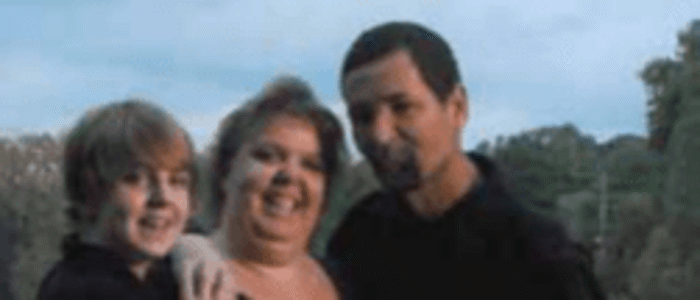Making the Right Decision
Joe Ferguson could be a little contrary at times.
“I’m a stubborn person,” he admitted. “When I make up my mind, it usually doesn’t change.” But after saying “no” to Hospice of Frederick County not once, not twice, but three times, Joe had a change of heart.
It was early fall when loss of balance led Joe to seek medical help. Employed as a painter with Frederick Memorial Health System, Joe was finding it increasingly difficult to work.
“I knew I was in trouble when the doctor said, ‘I’m sorry but you don’t have cancer,’” Joe recalled. The diagnosis was Amyotrophic Lateral Sclerosis, a progressive neurodegenerative disease (commonly known as ALS or Lou Gehrig’s Disease) for which there is no cure.
The news was difficult for Joe to hear. “Here I am, a man who’s worked all his life and supported his family. To be told that you’re shutting down and you have to have a group of people help you…well, I just never thought it would happen to me.” Joe’s wife Michelle, a medical technician in the Emergency Department of FMH, was already familiar with Hospice of Frederick County. She suggested that Joe give Hospice a chance, but he was adamantly opposed.
“My fear was that if Hospice came in, I was gone,” Joe recalled. “I thought that with Hospice you didn’t get to see your doctors, that I’d be confined to one person telling me how I was going to end my life. I thought they gave you medicine to help you die.”
Hospice social workers, a patient advocate from the ALS Association, and several others talked extensively with Joe and tried to clear up his many misconceptions about Hospice. They spoke about palliative care, explained how Hospice’s emphasis is on living not dying and explored the many ways in which Hospice could help not only Joe but also his family. “I had to learn some things,” Joe admitted. “But I finally decided to try Hospice—and I’ve been thankful ever since.”
The entire family saw how the benefits of Hospice’s involvement extend well beyond the patient. Both Joe and Michelle noticed improvements in their youngest son’s attitude and behavior after spending time with the Hospice social worker. The older son attended Camp Jamie to better cope not only with his dad’s diagnosis but also the recent death of his grandfather.
“It’s not easy for anybody—no matter what the disease—to prepare for death,” Joe explained. “But even with my disease, I’m blessed. Just making it from one day to the next is a blessing. I know it’s going to get worse, but we’re going to make it take awhile.
I’m glad Hospice is here. Even though I turned them down in the beginning, they didn’t give up on me. It’s been one of those roller-coaster rides. You don’t want to get on it, but you get on anyway—and I’m glad I did.”


